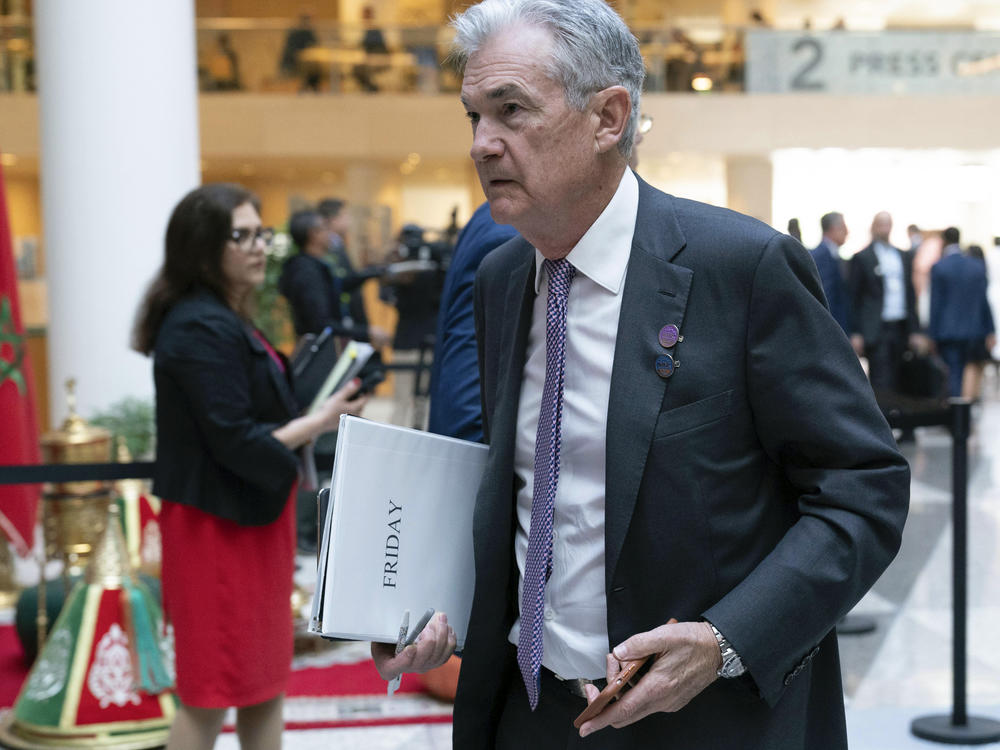Section Branding
Header Content
Pranksters posing as Ukraine's president tricked the Fed chair into a phone call
Primary Content
WASHINGTON — Federal Reserve Chairperson Jerome Powell was tricked into an extended phone call in January with Russian pranksters posing as Ukrainian President Volodymyr Zelenskyy, during which Powell appeared to discuss the economic impact of interest rate hikes.
Videos of the phone call have been posted on social media. In one clip, Powell says a "recession is almost as likely as very slow growth" this year. Powell has said before that the Fed's rapid series of rate hikes in the past year would slow the economy and even potentially cause a recession.
A spokesperson for the Federal Reserve said "the video appears to have been edited, and I cannot confirm it is accurate."
"Chair Powell participated in a conversation in January with someone who misrepresented himself as the Ukrainian president," the spokesperson said. "It was a friendly conversation and took place in a context of our standing in support of the Ukrainian people in this challenging time. No sensitive or confidential information was discussed."
The spokesperson would not say whether the call demonstrated that the Fed faces security lapses or what steps would be taken to try to prevent it from occurring again.
"The matter has been referred to appropriate law enforcement, and out of respect for their efforts we won't be commenting further," the spokesperson said.
The phone call was reportedly carried out by a duo of longtime Russian pranksters, Vladimir Kutznetsov and Alexei Stolyarov, according to Bloomberg News. The pair have previously tricked other world leaders into conversations under false pretenses, including European Central Bank President Christine Lagarde earlier this year and then-UK Foreign Secretary Boris Johnson in 2018.
The Powell incident has come to light at a time when the Fed is under intense scrutiny over its interest rate hikes, which are intended to cool the economy and slow inflation. Yet if the Fed keeps rates too high for too long, a recession could result.
Copyright 2023 NPR. To see more, visit https://www.npr.org.

